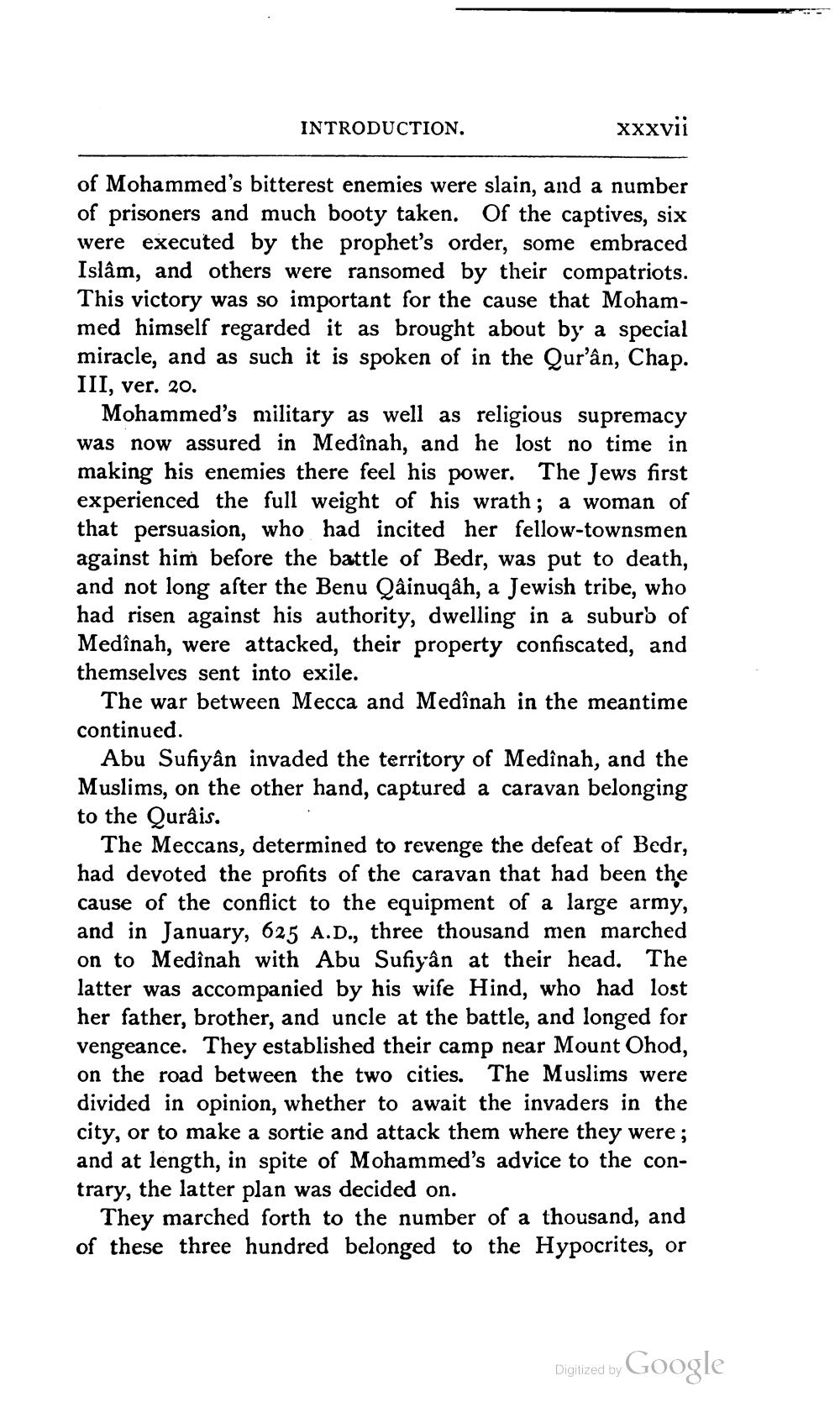________________
INTRODUCTION.
xxxvii
of Mohammed's bitterest enemies were slain, and a number of prisoners and much booty taken. Of the captives, six were executed by the prophet's order, some embraced Islâm, and others were ransomed by their compatriots. This victory was so important for the cause that Mohammed himself regarded it as brought about by a special miracle, and as such it is spoken of in the Qur'ân, Chap. III, ver. 20.
Mohammed's military as well as religious supremacy was now assured in Medînah, and he lost no time in making his enemies there feel his power. The Jews first experienced the full weight of his wrath; a woman of that persuasion, who had incited her fellow-townsmen against him before the battle of Bedr, was put to death, and not long after the Benu Qâinuqâh, a Jewish tribe, who had risen against his authority, dwelling in a suburb of Medînah, were attacked, their property confiscated, and themselves sent into exile.
The war between Mecca and Medînah in the meantime continued.
Abu Sufiyân invaded the territory of Medînah, and the Muslims, on the other hand, captured a caravan belonging to the Qurâis.
The Meccans, determined to revenge the defeat of Bedr, had devoted the profits of the caravan that had been the cause of the conflict to the equipment of a large army, and in January, 625 A.D., three thousand men marched on to Medinah with Abu Sufiyân at their head. The latter was accompanied by his wife Hind, who had lost her father, brother, and uncle at the battle, and longed for vengeance. They established their camp near Mount Ohod, on the road between the two cities. The Muslims were divided in opinion, whether to await the invaders in the city, or to make a sortie and attack them where they were; and at length, in spite of Mohammed's advice to the contrary, the latter plan was decided on.
They marched forth to the number of a thousand, and of these three hundred belonged to the Hypocrites, or
Digitized by
Google




